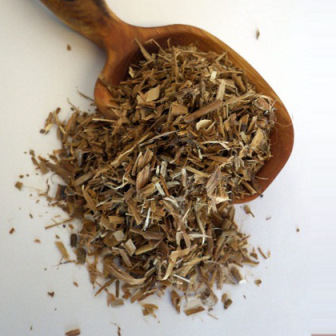Willow bark is the bark from several varieties of the willow tree, including white willow or European willow (Salix alba), black willow or pussy willow (Salix nigra), crack willow (Salix fragilis), purple willow (Salix purpurea), and others like weeping willow (Salix babylonica). The bark is used to make medicine.
Contents
Uses
- Willow bark acts a lot like aspirin, so it is used for pain, including headache, muscle pain, menstrual cramps, rheumatoid arthritis (RA), osteoarthritis, gout, and a disease of the spine called ankylosing spondylitis.
- Willow bark’s pain relieving potential has been recognized throughout history. Willow bark was commonly used during the time of Hippocrates, when people were advised to chew on the bark to relieve pain and fever.
- Willow bark is also used for fever, the common cold, flu, and weight loss.
- Salicin, the active ingredient in willow bark, seems to have contributed to the death of the composer, Ludwig von Beethoven. Apparently, Beethoven ingested large amounts of salicin before he died. His autopsy report is the first recorded case of a particular type of kidney damage that can be caused by salicin.
Benefits
- Willow bark contains a chemical called salicin that is similar to aspirin.
Cautions
- Willow bark is POSSIBLY SAFE for most people when taken by mouth for a short time (up to 12 weeks).
- It may cause stomach upset and digestive system upset. It can also cause itching, rash, and allergic reactions, particularly in people allergic to aspirin.
- Pregnancy and breast-feeding: Not enough is known about the safety of using willow bark during pregnancy. It’s best to avoid using it. Using willow bark while breast-feeding is POSSIBLY UNSAFE. Willow bark contains chemicals that can enter breast milk and have harmful effects on the nursing infant. Don’t use it if you are breast-feeding.
- Children: Willow bark is POSSIBLY UNSAFE n children when taken by mouth for viral infections such as colds and flu. There is some concern that, like aspirin, it might increase the risk of developing Reye’s syndrome. Stay on the safe side and don’t use willow bark in children.
- Bleeding disorders: Willow bark might increase the risk of bleeding in people with bleeding disorders.
- Kidney disease: Willow bark might reduce blood flow through the kidneys, which might lead to kidney failure in certain people. If you have kidney disease, don’t use willow bark.
- Sensitivity to aspirin: People with ASTHMA, STOMACH ULCERS, DIABETES, GOUT, HEMOPHILIA, HYPOPROTHROMBINEMIA, or KIDNEY or LIVER DISEASE might be sensitive to aspirin and also willow bark. Using willow bark might cause serious allergic reactions. Avoid use.
- Surgery: Willow bark might slow blood clotting. There is a concern it could cause extra bleeding during and after surgery. Stop using willow bark at least 2 weeks before a scheduled surgery.
Interactions
- Major Interaction Do not take this combination:
- Medications that slow blood clotting (Anticoagulant / Antiplatelet drugs) interacts with WILLOW BARK:Willow bark might slow blood clotting. Taking willow bark along with medications that also slow clotting might increase the chances of bruising and bleeding.
- Some medications that slow blood clotting include aspirin, clopidogrel (Plavix), diclofenac (Voltaren, Cataflam, others), ibuprofen (Advil, Motrin, others), naproxen (Anaprox, Naprosyn, others), dalteparin (Fragmin), enoxaparin (Lovenox), heparin, warfarin (Coumadin), and others.
- Moderate Interaction Be cautious with this combination:
- Aspirin interacts with WILLOW BARK: Willow bark contains chemicals similar to aspirin. Taking willow bark along with aspirin might increase the effects and side effects of aspirin.
- Choline Magnesium Trisalicylate (Trilisate) interacts with WILLOW BARK: Willow bark contains chemicals that are similar to choline magnesium trisalicylate (Trilisate). Taking willow bark along with choline magnesium trisalicylate (Trilisate) might increase the effects and side effects of choline magnesium trisalicylate (Trilisate).
- Salsalate (Disalcid) interacts with WILLOW BARK: Salsalate (Disalcid) is called a salicylate. It’s similar to aspirin. Willow bark also contains a salicylate similar to aspirin. Taking salsalate (Disalcid) along with willow bark might increase the effects and side effects of salsalate (Disalcid).
Other Names
Basket Willow, Bay Willow, Black Willow, Black Willow Extract, Brittle Willow, Corteza de Sauce, Crack Willow, Daphne Willow, Écorce de Saule, Écorce de Saule Blanc, European Willow, European Willow Bark, Extrait d’Écorce de Saule, Extrait d’Écorce de Saule Blanc, Extrait de Saule, Extrait de Saule Blanc, Knackweide, Laurel Willow, Lorbeerweide, Organic Willow, Osier Blanc, Osier Rouge, Purple Osier, Purple Osier Willow, Purple Willow, Purpurweide, Pussy Willow, Reifweide, Salicis Cortex, Salix alba, Salix daphnoides, Salix fragilis, Salix nigra, Salix pentandra, Salix purpurea, Saule, Saule Argenté, Saule Blanc, Saule Commun, Saule des Viviers, Saule Discolore, Saule Fragile, Saule Noir, Saule Pourpre, Silberweide, Violet Willow, Weidenrinde, White Willow, White Willow Bark, Willowbark, White Willow Extract, Willow Bark Extract.
References
Source: WebMD, ” Willow Bark” , www.webmd.com/vitamins-supplements/

